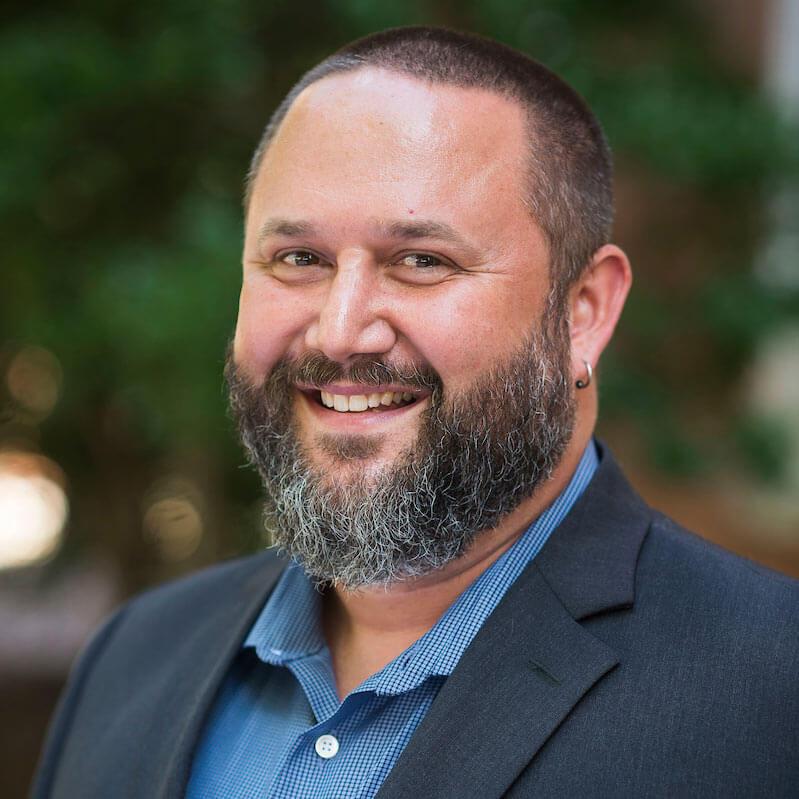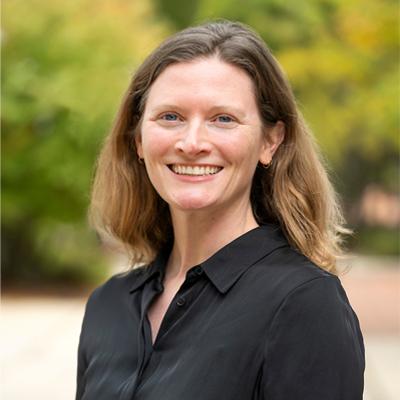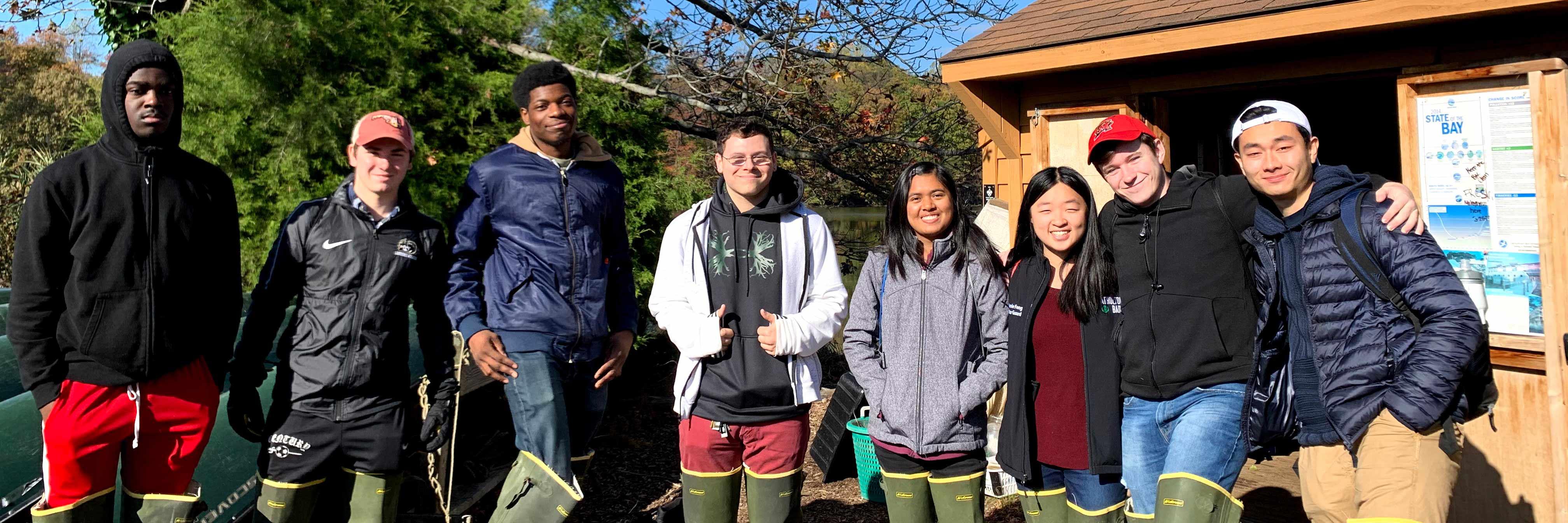Environment, Technology and Economy
Empowering students to build a just and sustainable world
Introduction
Human life and survival depend on the health and availability of the planet's natural resources, from water and air to fossil fuels and other energy sources. In this context, what does it mean to each of us to be a citizen of this community, this country, and this world?
The Environment, Technology and Economy (ETE) program takes on the complex and urgent issues of global sustainability from an environmental, social and economic perspective.
Students explore:
- Human impacts on ecosystems and the natural environment;
- The role of food systems in the just and sustainable production of food; and
- The impact of policy on society and the environment.
The program offers a holistic and intersectional view of sustainability, examining how institutional systems and traditional power structures create differential exposure to environmental hazards depending on race, gender, and national origin. Ultimately, students are encouraged to work towards a more just and sustainable future, both in their personal lives and as agents of systemic change.
ETE is ideal for students who are interested in engaging with the world and their communities. All majors are welcome and in fact, encouraged, to ensure a diversity of perspectives.
Colloquium and Lecture Topics
- The impacts of waste on people and the planet
- Global climate change and ecosystem services
- Guest lectures from experts on Climate Change, Indigenous foodways, insect pollinators, environmental policy and other topics
- Sustainable and regenerative approaches to food production and distribution, with an emphasis on the historical roots of these practices in Black and Indigenous cultures
- Corporate sustainability and ecological economics
- New and emerging trends in energy, transportation, biotechnology, and computer science
Learning about the interconnected relationship between environmental issues, economic security and social equity has helped me find connections between my ETE coursework and other classes.
Other Learning Opportunities
ETE offers a variety of opportunities to enhance students' classroom learning. UMD's location near Washington, DC, means students have access to world-class museums and to organizations with national influence.
Students also have the opportunity to:
- Work with a team to write a grant proposal to address an issue they care about, with the opportunity to implement the grant with faculty support;
- Learn about the history and ecology of the Anacostia River with the Anacostia Watershed Society while canoeing with friends;
- Hike in the region's many green spaces, including the Arboretum and Botanical Garden that is the UMCP campus, to experience firsthand the positive impact outdoor activity has on mental health;
- Tour Philip Merrill Environmental Center, the world’s first LEED-platinum building;
- Explore permaculture practices and native plant dining at Forested LLC, an experimental food forest.
ETE further works closely with UMD's Office of Sustainability, Resident Facilities, the UMD Arboretum and Botanical Garden, and other partners to facilitate sustainable initiatives on campus. Student projects have included revitalizing an interpretive trail on the Wooded Hillock, reducing student water use in showers, a tree-safe location for hammocks, and installing an algal turf scrubber to clean up campus waterways. Several projects have been awarded grant money so students can put their ideas into action.
Curriculum Overview
Over the two-year program experience (four semesters), students will complete two supporting courses that will count toward their ETE Scholars citation. In most cases, these will fulfill General Education requirements. Note that your Scholars courses—colloquium, practicum and supporting course—will generally be in addition to any courses you take to satisfy major requirements.
The following table represents a typical two-year curriculum, but individual schedules may vary. Details about courses and requirements can be found on the ETE Citation Checklist.
| SEMESTER | COURSE | CREDITS |
|---|---|---|
| Semester 1 | CPET 100: Colloquium I | 1 credit |
| Semester 2 | CPET 101: Colloquium II (DSSP, DVUP) | 3 credits |
| Semester 3 | CPET 200: Colloquium III | 1 credit |
| Semester 4 | CPET 230: Internship; or CPET 240: Service-Learning; or CPET 250: Research |
1-3 credits |
| Semester 1, 2, 3, or 4 | Supporting Course (var. Gen Ed) Supporting Course (var. Gen Ed) |
3 credits 3 credits |
Sponsoring College
Office Address
0129 Cumberland
Office Phone
Faculty


News and Notes, Etc.
The Diamondback: UMD’s first year book panel discusses how students can act on environmental issues, October 2022
Environment, Technology and Economy News
2025 Citation Class Honored at Awards Ceremony
College Park Scholars celebrated the best and the brightest of its most recent Citation class at its annual Citation and Awards ceremony recently. The 2025 Citation class, already packed with leaders in their academic fields of study and on campus, emerged undaunted by the challenges as one of the last high school classes during the pandemic, as productive community members in Scholars and at the University of Maryland.
Scholar Awarded 2025 NOAA Hollings Scholarship
Three University of Maryland sophomores, including a College Park Scholar, are recipients of 2025 National Oceanic and Atmospheric Administration (NOAA) Ernest F. Hollings Scholarships, one of the nation’s highest honors for exceptional students in STEM fields.The scholarships provide up to $19,000 in financial support, professional development opportunities and a paid summer internship at any NOAA facility across the U.S. With this year’s recipients, UMD’s total number of Hollings Scholars since 2008 rises to 49.
Strengthening Communities, a Course at a Time
Civic Engagement Across the Curriculum at UMD (CEAC at UMD), a pilot professional development program, supported 12 instructors, including several College Park Scholars program directors and staff, from seven schools and colleges as they integrated community-focused strategies and experiences into more than 20 courses serving over 1,000 students, in disciplines as varied as art, kinesiology and sociology, during the fall and spring semesters. College Park Scholars in the CEAC at UMD 2024-25 Cohort:
Meet Maryland's Unofficial Mascots
Testudo reigns as the University of Maryland’s ultimate mascot—that’s undisputed. But across campus, other animals represent their units in a more intimate, informal capacity.Learn more about Environment, Technology and Economy's (ETE) unofficial mascot, Fiona The Brave Knight, and her relationship with the program. “Students miss their pets at home," said Tim Knight, ETE program director.
‘Reclaiming Roots’ panel highlights stories of land, culture and community
The Environment, Technology and Economy program hosted its annual “Reclaiming Roots” panel, spotlighting the experiences of Black, Indigenous, and other farmers of color in Maryland.This panel, co-hosted by held in the Edward St. John Learning and Teaching Center, was co-sponsored by the Institute of Applied Agriculture and College Park Scholars programs Justice and Legal Thought; and Science, Technology and Society.
Scholars Honor Citation and Founders Circle Award Winners at Annual Ceremony
College Park Scholars, celebrating the 30th anniversary of the program's founding, honored the best and the brightest of its most recent Citation class at its most recent Citation and Awards ceremony. This tenacious class, filled with future changemakers and leaders, pushed through a challenging start to college that began during the pandemic to emerge as standouts in the classroom, in their communities, and at the University of Maryland.

